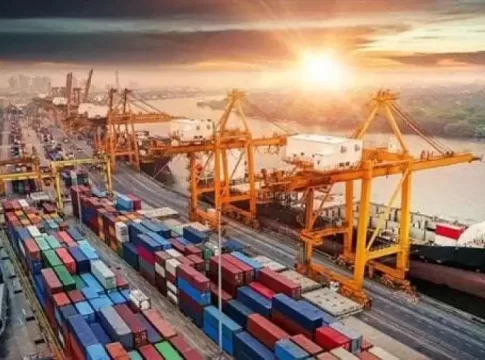Hassan El-Khatib, Egypt’s Minister of Investment and Foreign Trade, announced a comprehensive initiative aimed at overhauling the customs clearance system. During his recent visit to Alexandria Governorate, El-Khatib detailed the government’s commitment to implement 29 collaborative measures with the Ministry of Finance. These measures are meticulously designed to streamline the customs process, enhance inspection efficiency, and facilitate trade flow, thereby reducing both time and costs for traders.
The government’s action plan aims to slash customs clearance time by up to 75%, with a target of achieving a maximum processing time of two working days by the end of 2025. This ambitious timeline aligns with the Cabinet’s directives, specifically session No. (19) dated November 14, 2024, which mandates the operation of customs clearance agencies on a shift system throughout the week, including holidays.
El-Khatib emphasized Egypt’s strategic geographical location as a pivotal asset in their trade strategy. Positioned as a gateway between Africa, the Middle East, and Europe, Egypt is uniquely poised to capitalize on its location to enhance its trade capabilities. The ultimate goal is to secure a spot among the top 50 countries in global trade within two years and to ascend into the top 20 by 2030. The reforms are backed by unwavering support from Egypt’s political leadership, demonstrating a unified national effort to bolster Egypt’s trade infrastructure.
According to a report by the World Bank, reducing customs clearance time is essential for enhancing trade competitiveness. The World Trade Organization (WTO) estimates that efficient border management can increase global GDP by over $1 trillion annually. Dr. Ahmed Salim, a leading economist specializing in trade logistics, commented on Egypt’s reforms, stating, “Improving customs efficiency not only facilitates smoother trade but also attracts foreign investment, which is crucial for economic growth.”
The United Nations Conference on Trade and Development (UNCTAD) highlights that countries with streamlined customs processes achieve significantly better performance in international trade indexes. As Egypt moves forward with its reforms, the potential for increased foreign direct investment and economic expansion becomes more attainable.
Minister El-Khatib revealed that the government is also investing in digital infrastructure and training for customs officers to ensure the sustainability of these reforms. “We are not just aiming for short-term improvements; our vision extends to creating a robust and resilient trade ecosystem that supports Egypt’s economic ambitions,” El-Khatib stated.


